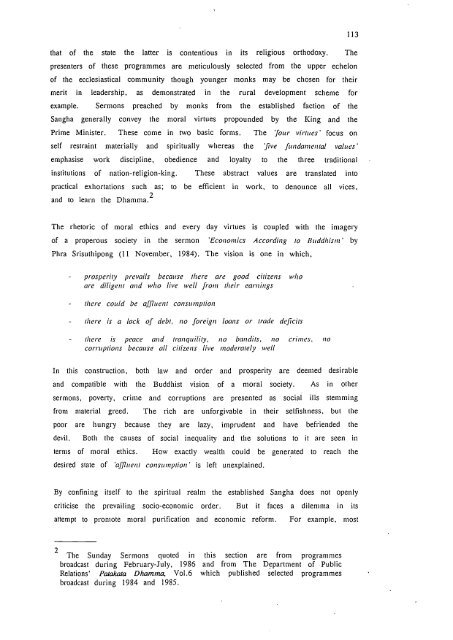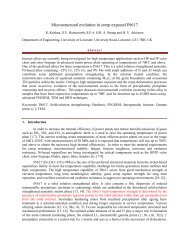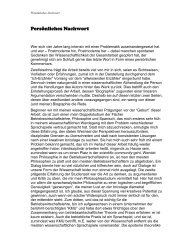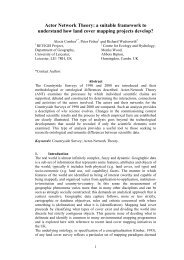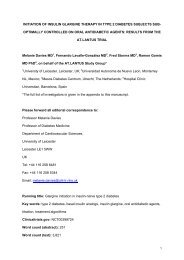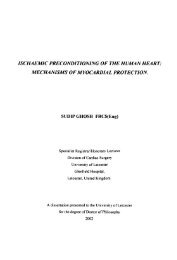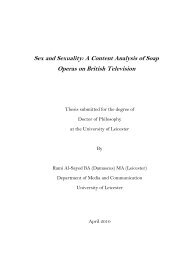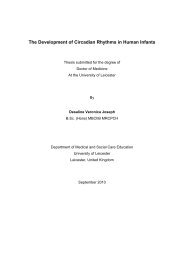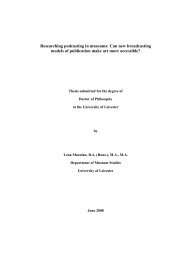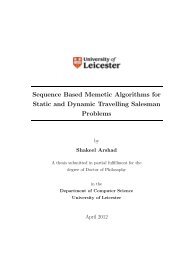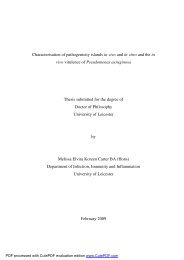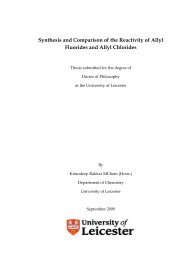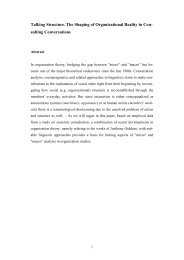iieiiei1eWrkers - Leicester Research Archive - University of Leicester
iieiiei1eWrkers - Leicester Research Archive - University of Leicester
iieiiei1eWrkers - Leicester Research Archive - University of Leicester
Create successful ePaper yourself
Turn your PDF publications into a flip-book with our unique Google optimized e-Paper software.
that <strong>of</strong> the state the latter is contentious in its religious orthodoxy. The<br />
presenters <strong>of</strong> these programmes are meticulously selected from the upper echelon<br />
<strong>of</strong> the ecclesiastical community though younger monks may be chosen for their<br />
merit in leadership, as demonstrated in the rural development scheme for<br />
example. Sermons preached by monks from the established faction <strong>of</strong> the<br />
Sangha generally convey the moral virtues propounded by the King and the<br />
Prime Minister. These come in two basic forms. The 'four virtues' focus on<br />
self restraint materially and spiritually whereas the 'Jive fundameival values'<br />
emphasise work discipline, obedience and loyalty to the three traditional<br />
institutions <strong>of</strong> nation-religion-king. These abstract values are translated into<br />
practical exhortations such as; to be efficient in work, to denounce all vices,<br />
and to learn the Dhamma.2<br />
The rhetoric <strong>of</strong> moral ethics and every day virtues is coupled with the imagery<br />
<strong>of</strong> a properous society in the sermon 'Economics According to Buddhism' by<br />
Phra Srisuthipong (11 November, 1984). The vision is one in which,<br />
- prosperity prevails because there are good citizens who<br />
are diligent and who live well from their earnings<br />
- there could be affluent consumption<br />
- there is a lack <strong>of</strong> debt, no foreign loans or trade deficits<br />
- there is peace and tranquility, no bandits, no crimes, no<br />
corruptions because all citizens live moderately well<br />
In this construction, both law and order and prosperity are deemed desirable<br />
and compatible with the Buddhist vision <strong>of</strong> a moral society. As in other<br />
sermons, poverty, crime and corruptions are presented as social ills stemming<br />
from material greed. The rich are unforgivable in their selfishness, but the<br />
poor are hungry because they are lazy, imprudent and have befriended the<br />
devil. Both the causes <strong>of</strong> social inequality and, the solutions to it are seen in<br />
terms <strong>of</strong> moral ethics. How exactly wealth could be generated to reach the<br />
desired state <strong>of</strong> 'affluent consumnption ' is left unexplained.<br />
By confining itself to the spiritual realm the established Sangha does not openly<br />
criticise the prevailing socio-economic order. But it faces a dilemma in its<br />
attempt to promote moral purification and economic reform. For example, most<br />
2 The Sunday Sermons quoted in this section are from programmes<br />
broadcast during February-July, 1986 and from The Department <strong>of</strong> Public<br />
Relations' Palakata Dhamma, Vol.6 which published selected programmes<br />
broadcast during 1984 and 1985.<br />
113


